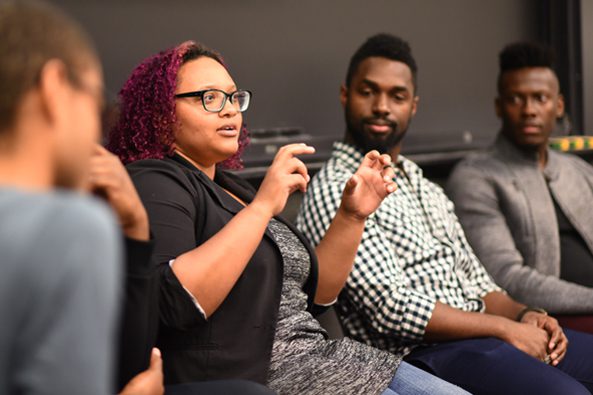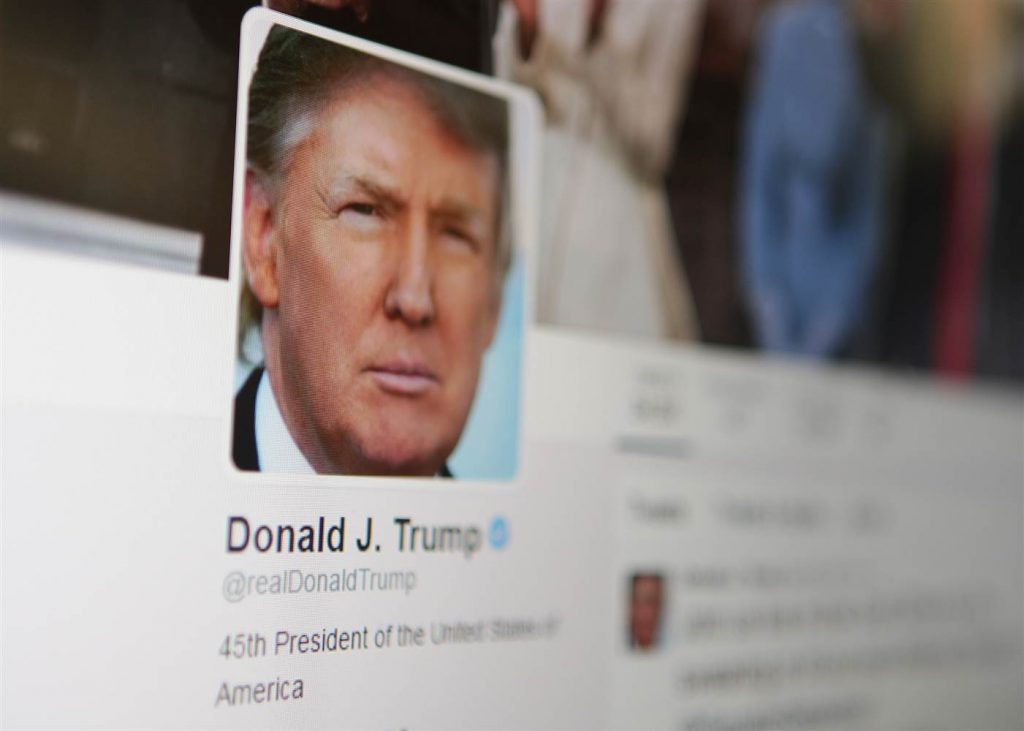7 Best Schools that Specialize in Supply Chain Management

Supply chain management delves into business at the big-picture level. It puts all the operations together to ensure that everything functions smoothly. It’s the ideal position for individuals who are interested in managing people, organizing moving parts, and analyzing global trends.
According to the Bureau of Labor and Statistics, supply chain management and operations is a fast-growing career field. The employment rate is expected to increase by 7 percent by 2026. It’s also an industry with high salary potential with additional earning opportunities due to commissions and bonuses.
Earning an MBA in supply chain management opens up a host of opportunities to work as an inventory control manager, purchasing manager, vendor managed inventory coordinator, warehouse operations manager, and more. And almost every company needs quality employees in the field, which means you could find yourself working in retail, healthcare, technology, and more.
If that sounds of interest to you, the key is finding the right MBA program for success. Below, we’ve outlined our top seven picks for MBA programs in supply management. Continue reading…
Harvard Talks Analytics, MIT Explores Diversity in Tech, and More – Boston News

Let’s explore some of the most interesting stories that have emerged from Boston business schools this week.
Should an Algorithm Tell You Who to Promote? – Harvard Business Review
Professor of human resource management Jeffrey T. Polzar published a fictionalized case study that illuminates the influential role that “people analytics” algorithms play in steering hiring managers to which hot new talent. In a recent interview with Harvard Business Review, Polzar said:
“The day after Anne’s farewell party, Aliyah met with Christine and Brad Bibson, a data scientist on the people analytics team. ‘We’ve just started looking at networks,” Brad said, ‘and we think they can reveal some useful information. These are network analyses based on Molly’s and Ed’s e-mail and meeting history at BBI. With their permission and without looking at the content of their e-mails or calendars, we analyzed who they had been in contact with across the firm over the past six months.'”
Explore more of the fictionalized case study here.
Diversity in Tech a “People Problem” In Need of a Management Solution – MIT Sloan Newsroom
The MIT Sloan Coders Club recently hosted the Black in Tech and Entrepreneurship panel, in which a group of five entrepreneurs and engineers “shared experiences and offered suggestions on what tech companies can do to diversify their workforces and diminish bias.” Adam Taylor, founder of news app Black, explains:
“It is a people problem. When you think about the people that are on your teams professionally, how would you hire someone to work with you every day for however long they’re with your company? You tend to hire people you’re comfortable with.”

Students Roderic Morris of Drift, Amal Hussein, Nana Essilfie-Conduah, and Adam Taylor / Photo via Mimi Phan
Read more about this diverse take on tech’s diversity issue here.
AI Knows What Customers Want, Transforms Supply Chains – D’Amore-McKim Blog
D’Amore-McKim’s distinguished professor of supply chain management Nada Sanders uses Spanish “fast fashion” company Zara as the shining example of an optimized supply chain that uses artificial intelligence to drive customer satisfaction. In fact, many other businesses have begun to crib notes.
“Seven-Eleven Japan has taken lessons from Zara, using technology to microsegment demand and to understand what customers want. They will literally reshuffle and change what the merchandising looks like in the course of one day, in one location, for different segments of customers.”
Read more about professor Sanders’ research here.
Babson Reveals New Scholarships, Rankings, for Blended Learning MBA – MetroMBA
MetroMBA recently spoke with F.W. Olin Graduate School of Business faculty director Phillip Kim about the shape of the Babson Blended Learning hybrid online MBA program, shortly after the school earned some high praise from the likes of the Financial Times.
“Our program integrates the best of the ‘full-time’ graduate experience with a delivery format designed for working professionals, whose time is at a premium. Our students can complete their MBA in 21 months while working full-time. They learn from accomplished faculty, who are experts in their own disciplines and translate academic concepts into practical takeaways for our students. We are also the number one school for entrepreneurship education, and this ethos is infused throughout the program.”
Read more of our interview with Kim here.
Boston News: Northeastern Explores Trump Tweets, MIT Offers FinTech Advice and More

Let’s explore some of the most interesting stories that have emerged from Boston metro business schools this week.
Can A Trump Tweet Dramatically Sway A Company’s Value? – Northeastern’s D’Amore-McKim Blog
Will Clark, DMSB ’17, along with Northeastern University D’Amore-McKim School of Business finance professors David Myers and Jeffery Born, sought to understand the impact that President Trump’s tweets—which often directly address publicly traded companies like Ford, Toyota, Walmart, GM, and Boeing—had on their stock market value.
“Past presidents communicated through the media. This was the first time that a president was communicating directly with the public—with investors—about companies. We really weren’t sure what to expect from the data,” says Clark, who is now a credit analyst with Morgan Stanley.
The trio’s research found that Trump’s tweets, in fact, did have some impact on companies, often increasing trade volume within the first few hours and days after he references them on the social media platform. The research was revealed in the academic journal Algorithmic Finance.
“The team found that Trump’s tweets dramatically increased trading volume for the companies’ stocks in the first few days following a tweet. They also found that positive (or negative) tweets about companies increased (or decreased) the firms’ stock prices by a modest amount—just 1 percent. But the changes were only temporary: Within a few days, the firms’ trading volumes and stock prices returned to pre-tweet levels.”
The lasting effect, however, was found to be longing. The trio notes that the most active traders, which they refer to as “noise traders,” were very reactive to Trump’s words, with trading tapering off after only a few days.

“They’re regular people and under-informed investors who want to get in and out and make a buck without thinking too long and hard about it,” Born notes about the financial impact of Trump tweets.
You can read more about the financial research on the Trump tweets from D’Amore-McKim here.
3 Lessons To Keep In Mind When Starting A FinTech Venture – MIT Sloan Newsroom
MIT Sloan School of Management MBA alum Sophia Lin, ’12, and her partner Andrew Kelley of the FinTech startup Keel, which connects “rookie investors with more seasoned ones,” shares some hard-won lessons in an op-ed for the Sloan blog. First of all: beware of hidden costs specific to FinTech. “
“Starting costs are higher than other industries because of data, infrastructure, and security requirements,” Lin said. “Data is expensive, which stops a lot of early stage startups from entering this field. But you need data to build your product.”
Read all of Lin’s words of wisdom here.
More CEOs Have Begun To Take Social Responsibility Seriously – HBR
CEOs from Facebook’s Mark Zuckerberg to Blackrock’s Larry Fink have begun to take very public stands to address the long-term impacts their products have had and continue to have on communities and the environment.
“We are witnessing a big, transitional moment—akin to the transition from analog to digital, or the realization that globalization is a really big deal. Companies are beginning to realize that paying attention to the longer term, to the perceptions of their company, and to the social consequences of their products is good business.”
Harvard Business School John and Natty McArthur University Professor Rebecca M. Henderson also explains that there are distinct differences between the size of a company, which often contrasts with the social goals of the company. The larger the company, the more long-term the outlook, she explains. Unlike small companies, larger firms worry about quarter-to-quarter results less.
“Big firms can also internalize certain externalities. An externality is a cost from a transaction that doesn’t fall on the buyer or the seller. If I pollute the air to make a product I sell to you, the cost of that pollution is spread out across society, and isn’t incorporated in the price I charge you for the product. Externalities pose problems for markets, since neither buyer nor seller have any incentive to deal with the costs. But sometimes, for really large firms, things work differently.”
The unfortunate causality, she notes, is that we are often reliant on the largest companies to take the initiative for causes that may be considered part of the global good. If some companies among the Fortune 500 elect to, say, go carbon neutral within the next decade, that can have a profound impact on other competing companies. And if those initiatives are not as profitable, there is an even greater risk of other companies being reluctant to attempt similar efforts.
Read more about the growing CSR trend among CEOs here.
Northeastern Prof Talks About Amazon Automation and Future Shopping

After the emergence of Amazon Go, a cashier-less convenience store the e-commerce juggernaut recently opened in downtown Seattle, Northeastern University’s D’Amore-McKim School of Business explored the potential impact of automation on the future of commerce.
The simple concept behind Amazon Go is a streamlined mini-mart experience in which customers “scan their smartphones with an app [and] grab what they want.” DMSB Associate Professor of Marketing Strategy and Managerial Decision-Making Bruce Clark discussed the implications of what New York Magazine dubbed the “automated 7-Eleven killer.”
“Unless you have an Amazon Go next door to your store, I’m not sure this is a big deal. It’s not clear to me the customer experience of an Amazon Go store is sufficient to make me walk past the local 7-Eleven. Geography is destiny in this sense: where you have more convenient stores, you will do well. A longer-term threat might be if Whole Foods went cashier-free and you had a Whole Foods next to your convenience store.”
Clark is quick to point out that AI more commonly automates pieces of jobs rather than entire gigs and cites the advent of the ATM in the late 1960s and ’70s as a key example.
“Despite widespread adoption of ATMs, employment of bank tellers increased over much of the past three decades. The driving factor was that while a given bank branch might require fewer tellers, that reduction in labor costs meant that banks could open more branches, offsetting the loss at any given branch. Tellers’ jobs in turn became more like that of a customer service representative rather than a paper- and currency-pusher.”
Clark remains cautiously optimistic about the future of retail, according to reports.
“The common thinking is that over time, human jobs will evolve toward processes at which humans remain better value, notably in emotional intelligence and physical dexterity. Retail employees will find their jobs increasingly specified in those terms. You’re either interacting with customers or efficiently managing the stocking and layout of a store. Employees who excel in these areas should be okay.”
But perhaps less so about the future of employment across the board. “All that said, I’m not sure any of us should be assuming we will have stable, well-paid employment in the future.”
Northeastern Professors Talk Dangers of Aetna-CVS Mega Merger

A recent multi-billion dollar mega-merger between health insurance company Aetna and popular medical dispensary chain CVS Heath has certainly raised some eyebrows, of which include several healthcare experts at Northeastern University and the D’Amore-McKim School of Business.
How Boston Business Schools Help Low-Income MBA Applicants

Anyone planning on earning a postgraduate business degree knows that MBA programs cost a lot of money. In the Boston metro, where the cost of living is already high, the annual cost of an MBA program can reach upward of $100,000 … Ouch! Continue reading…
